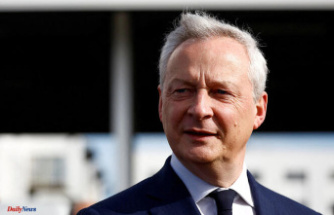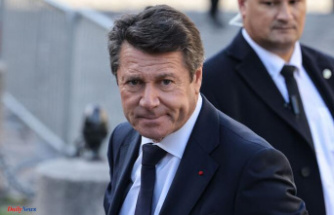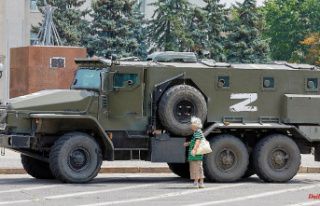He has no regrets: Russia's President Putin is sticking to the "special military operation" in Ukraine and setting the course for the next few weeks. Moscow does not aim to "destroy Ukraine," the Kremlin chief said. However, Kyiv must brace itself for further shelling.
After the devastating attacks on large parts of Ukraine at the beginning of the week, Russian President Vladimir Putin promised further shelling. Out of a total of 29 objects targeted, 7 "were not damaged as much as the Defense Ministry had planned," Putin said at the end of a summit in the Kazakh city of Astana in Central Asia. "But they will make up for it, the objects." The Kremlin chief did not say what the specific goals were.
At the same time, he emphasized that no further large-scale attacks are currently planned: "There is no longer any need for massive strikes. Now there are other tasks." After that we will see. Russia is "not aiming to destroy Ukraine," the Russian head of state assured. Around seven and a half months after the war began, Russia fired more than 80 rockets at Ukraine on Monday - including at the capital Kyiv. Around 20 people were killed and more than 100 injured. The attacks were apparently primarily aimed at the neighboring country's energy infrastructure. In the meantime, the power went out in several regions.
In view of the upstream explosion on the Crimean bridge, for which Russia blames Ukraine, Putin threatened to end the grain deal with the country. The Russian secret service FSB has the information that the explosive device for the bridge came by sea from Odessa. "If it turns out that the humanitarian corridors for exporting grain were used for this, then we will close them."
However, there is currently no definitive evidence for this, he admitted. The day before, Putin's adviser Yuri Ushakov questioned the extension of the agreement because promises made to Russia to relax sanctions on food and fertilizer exports had not been kept. Among other things, 300,000 tons of Russian fertilizers are still stuck in European ports.
When asked whether he had any regrets about the war, which Moscow continued to refer to as a "special military operation," Putin said: "No." Then he added: "I want to make this clear: what is happening today is unpleasant to say the least, but we would have gotten the same thing a little later, only on worse terms for us. So we are acting correctly and in good time." The Kremlin chief repeatedly justifies his war of aggression with an alleged threat to Russia from Western-backed Ukraine. However, international observers consider this to be a mere pretext.
According to Putin, Russia is currently not planning any further mobilization of reservists beyond the partial mobilization announced so far. In the "foreseeable future" he sees no need to call in more reservists. So far, 222,000 reservists have been called to arms, and the planned number of 300,000 will be reached in around two weeks. Of the conscripts, 16,000 are already “in combat units”. The Russian President also countered the fears of the population that a second wave of mobilization could already be planned. "There have been no proposals from the Department of Defense in this regard, and I don't see any need for it in the foreseeable future."
On the question of a possible meeting with US President Joe Biden on the sidelines of the G20 summit in Indonesia next month, Putin said he "frankly sees no need for it". It has not yet been decided whether he will personally fly to the summit in Bali. However, he was open to talks with Ukraine and to mediation efforts by countries such as Turkey. For the first time, the Kremlin chief also admitted that Russia's other partner countries in the ex-Soviet Union were "concerned" about the conflict in Ukraine.












